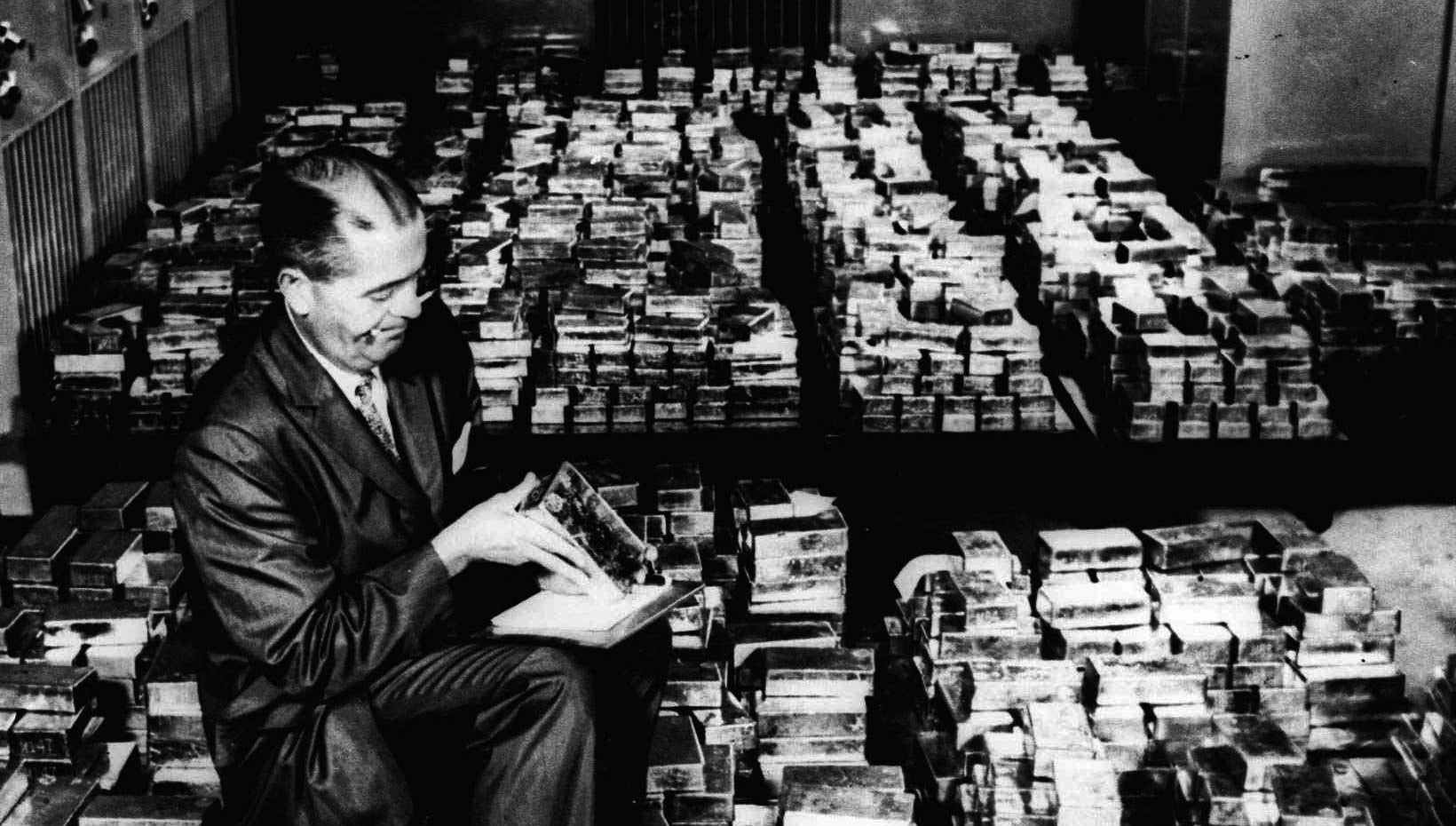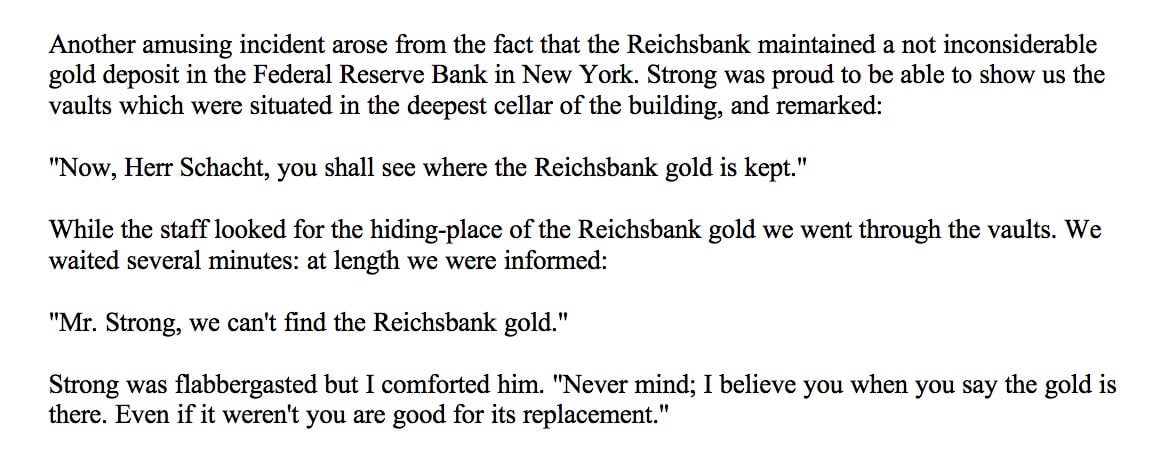German gold paranoia has a grain of historical truth
Much has been written about the single-minded German focus on hard currency, which armchair sociologists trace back to the brutal German hyperinflation that crested in 1923.


Much has been written about the single-minded German focus on hard currency, which armchair sociologists trace back to the brutal German hyperinflation that crested in 1923.
Quartz’s Stephanie Gruner Buckley earlier noted that the most recent manifestation of Germany’s inflation phobia is a broad-based push to find and weigh at least some of Germany’s overseas gold:
The demand originated from German members of parliament, acting on rumors that some of the nation’s gold could be missing or might have been replaced by certificates. Bundesbank authorities counted and weighed some of the gold stored in Frankfurt vaults, though not all, says a spokeswoman. Reports have emerged that inside are 82,857 gold bars weighing some 1100 tons (paywall). MPs were invited into the vault to see it for themselves, the spokeswoman confirms, and there have been thoughts of letting journalists inside as well, though so far security concerns have prevented that (German).
The whole thing seems a bit over the top. But for the record, the US Federal Reserve did once lose Germany’s gold way back in the 1920s.
In his Pulitzer-winning book “Lords of Finance: The Bankers Who Broke the World,” financial historian Liaquat Ahamed writes about how the then-head of the Fed, Benjamin Strong, offered to show the head of Germany’s central bank, Hjalmar Schacht, the stockpile of gold that was the German bank held in the basement vault of the Federal Reserve Bank of New York.

And here’s how Schacht himself, who later served as Hitler’s minister of economics and as president of the Reichsbank under the Nazis, recalled the incident, in his memoirs. (Schacht’s story is actually more complicated. After the July 20, 1944 attempted assassination of Hitler, he was arrested and eventually sent to Dachau. He was subsequently freed by the allies, then tried at Nuremberg, then acquitted. He lived until 1970.)

Now, neither of these accounts explain how this rather awkward exchange was ended exactly, which is pretty amazing. But apparently it’s considered somewhat rude to ask to actually check out your stockpiles of gold. According to an Associated Press report, Federal Auditors told German politicians that Germany’s gold bars “‘have never been physically checked by the Bundesbank itself or other independent auditors regarding their authenticity or weight.'” The bank relies on a “written confirmations by the storage sites,” the AP reported.